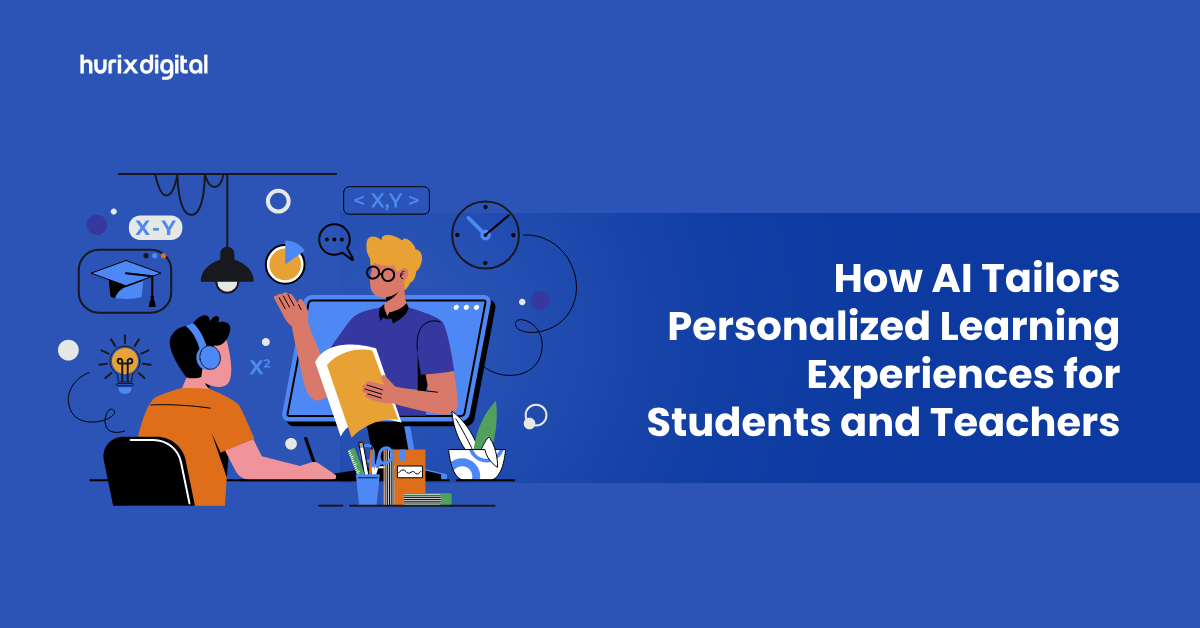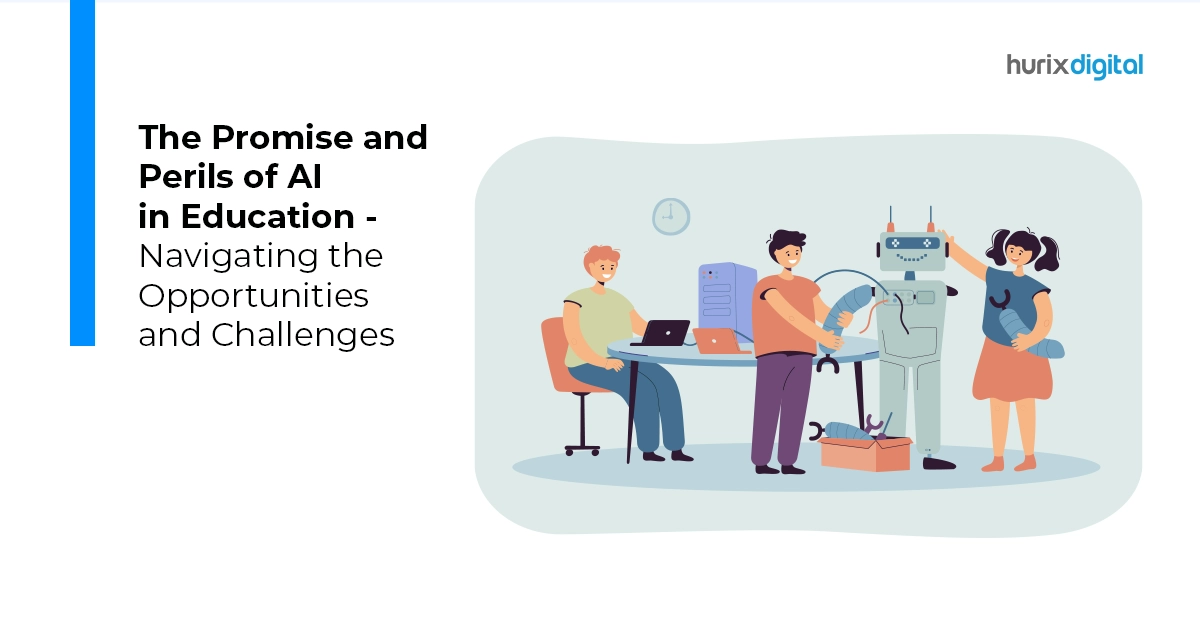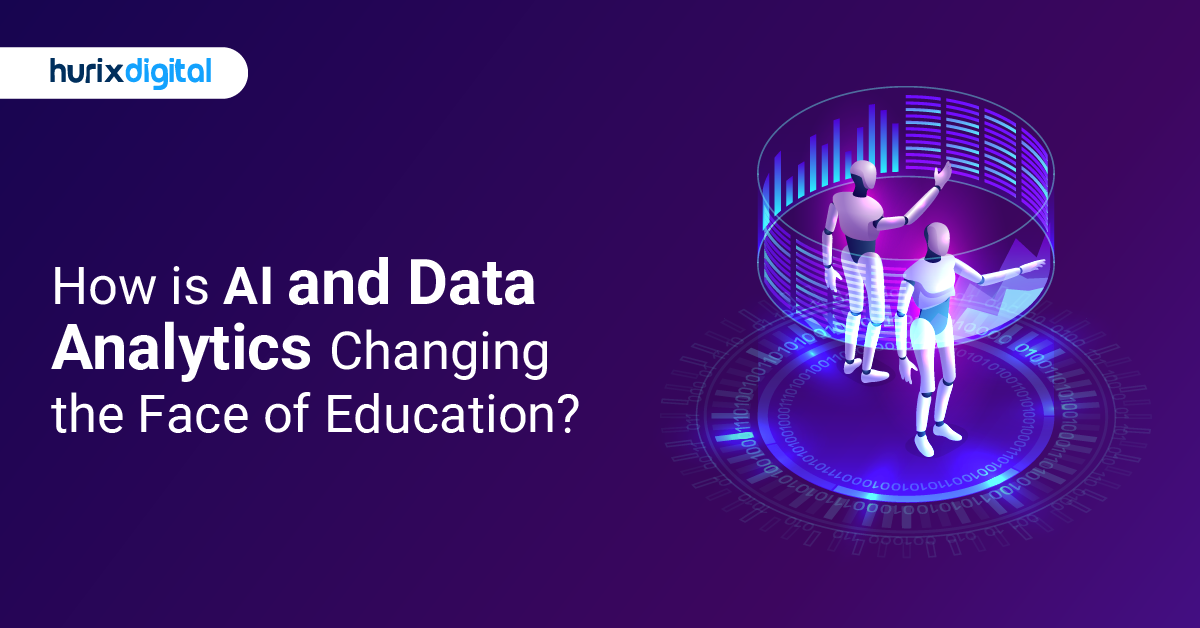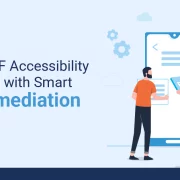
How AI Tailors Personalized Learning Experiences for Students and Teachers?
Summary
Discover how AI technology customizes learning experiences for both students and teachers, enhancing educational outcomes and teaching effectiveness.
In recent years, the integration of AI in education has sparked a transformative shift, ushering in an era of student-centered learning. This shift, envisioned by visionaries like Bill Gates, revolves around AI-powered tools such as Artificially Intelligent Tutoring Systems (AITS), enhancing the educational experience for students of all ages and backgrounds.
These tools, often referred to as artificial intelligence in the classroom, are not designed to replace teachers but to complement and amplify their ability to offer individualized attention and tailored lessons to each student.
Table of Contents:
- Using AI for Personalized Learning
- How AI Simplifies Personalized Learning for Everyone?
- What’s Next?
- Wrapping Up
Using AI for Personalized Learning
AI in education is about understanding and adapting to the unique learning styles and paces of each student. Imagine a classroom where a student struggling with algebra receives the needed guidance without hindering the progress of others ready for more advanced topics.
Similarly, a lifelong learner, like a grandmother eager to learn a new language, can find the right resources and support. This approach eliminates the need for the ‘teach to the middle’ strategy, often necessary in diverse classrooms, and enables a truly personalized learning environment.
These advancements in AI in education extend beyond the conventional one-size-fits-all setup. AI-powered educational resources and digital tools offer dynamic, engaging, and interactive learning experiences. They are reshaping how knowledge is delivered, making education not just more accessible but also more effective in fostering student engagement and comprehension.
As the integration of AI into education technologies has surged, the global market for AI in education is projected to reach $21.52 billion by 2028, growing at a CAGR of 45.21%.
A Microsoft report reveals that an impressive 99.4% of surveyed educators believe AI is a crucial factor that will provide their institutions with a competitive advantage in the upcoming years. Furthermore, 15% of these educators believe AI will be a game changer for EdTech solutions.
Additionally, research from HolonIQ indicates that the global education and training market is poised for substantial growth and is expected to reach a value of $10 trillion by 2030. This surge is attributed mainly to the growing number of students at both K12 and post-secondary levels, particularly in regions like Asia and Africa.
These trends are directed toward a widespread acknowledgment of AI’s pivotal role in shaping modern educational landscapes. This growth signifies a new chapter in education, where AI-driven, student-centered learning becomes the cornerstone of academic success and development.
Also Read: Top 10 Advantages of Using Generative AI for Assessments in Schools
How AI Simplifies Personalized Learning for Everyone?
Personalized learning is a method that aims to customize education to the specific needs and interests of each student. AI technology plays a vital role in making this possible. By analyzing students’ learning patterns and data, AI can craft learning experiences tailored to individual abilities and interests.
Here’s a look at how AI can be effectively used to create a more personalized educational experience:
1. Adaptive Learning
AI-powered adaptive learning platforms take into account various student data points, such as performance, strengths, weaknesses, and pace of learning.
These systems use this data to create personalized learning journeys, providing content and activities that meet each student’s unique needs.
2. Intelligent Tutoring Systems
AI-driven systems offer tailored support and guidance to students. They can assess student understanding, highlight pain points, and provide specific feedback and practice exercises, adapting to each student’s learning curve.
3. Personalized Recommendations
AI algorithms can sift through vast amounts of data, like past performances and interests, to suggest educational resources and materials.
This ensures students are exposed to content that aligns with their learning preferences and goals.
4. Natural Language Processing (NLP)
AI’s NLP capabilities enable the creation of smart chatbots and virtual assistants that can interact with students conversationally.
These AI tools can answer queries, provide explanations, and engage in dialogue to enhance the interactive learning experience.
5. Data-Driven Insights
AI empowers educators to gather and analyze vast volumes of student data, such as engagement levels and assessment results. This analysis provides valuable insights, helping teachers better understand individual student needs and tailor their teaching methods.
6. Multimodal Learning Experiences
AI facilitates multimodal learning through various formats, including text, audio, video, and interactive activities.
This diversity allows students to engage with learning materials in ways that suit their individual preferences, making education more engaging and tailored.
7. Personalized Assessment and Feedback
AI can streamline the assessment process, offering immediate, personalized feedback to students.
For example, intelligent grading systems can evaluate assignments and tests, providing rapid feedback that highlights areas for improvement and offers suggestions for further learning.
8. Individualized Learning Paths
AI-driven platforms can craft unique learning paths for students based on their objectives, interests, and existing knowledge. By customizing the curriculum and pace to each student’s needs, AI ensures optimal learning support and challenges.
It’s crucial to note that while AI provides immense opportunities for personalizing education, the role of human teachers is irreplaceable in fostering nurturing and motivational learning environments.
The balance between AI and human expertise paves the way for a more effective and individualized educational experience for each student.
Also Read: Innovative Teaching: A Guide to Integrating AI-Powered Learning Tools in the Classroom
What’s Next?
As we look to the future, the role of AI in education is set to revolutionize the traditional approaches to teaching and learning. AI’s capability to process extensive data, recognize learning patterns, and make smart decisions positions it as a powerful tool for tailoring and enhancing educational experiences for learners across various age groups.
Technologies like virtual reality (VR) and augmented reality (AR), when combined with AI, can offer immersive learning experiences. These technologies allow students to delve into complex subjects in an interactive and captivating way.
However, as AI’s presence in education grows, it becomes crucial to prepare educators and policymakers for both the challenges and opportunities it presents.
There’s a need for specialized training programs to equip educators with the skills required to effectively implement AI tools in classrooms. This includes integrating AI into lesson plans in line with curriculum standards and catering to the unique needs of their students.
Educators also need to be adept at interpreting the data provided by AI systems. This skill is essential for making well-informed decisions regarding student performance and teaching strategies.
Wrapping Up
Beyond the technical intricacies, ethical considerations hold paramount importance, especially when it comes to data privacy and security. With AI systems handling vast quantities of student data, establishing robust guidelines and protective measures is essential to safeguarding student privacy and preventing data misuse.
Having said that, if you are looking for personalized learning platforms and AI-powered learning solutions, get in touch with Hurix Digital. We provide customized learning programs using state-of-the-art hardware and software to meet any kind of business requirement.
Contact us today to discover more about how Hurix Digital can revolutionize your personalized learning experiences!

Senior Vice President – Business Development
Over 25 years of experience in the edtech and workforce learning industry with strong skills in Business Development, Customer Relationship Management (CRM) and Strategy.

























